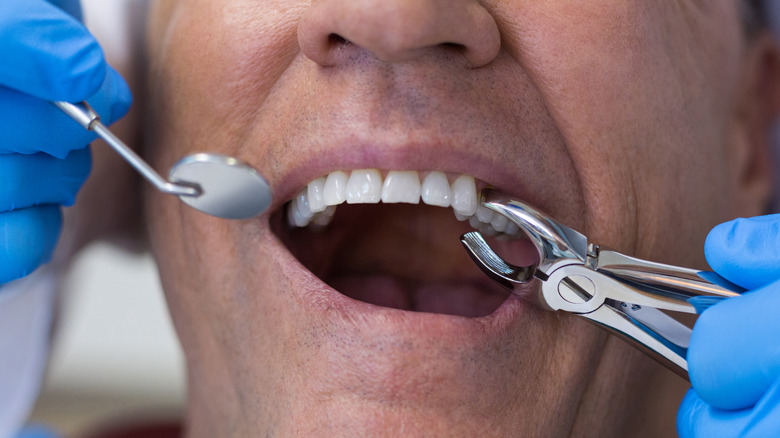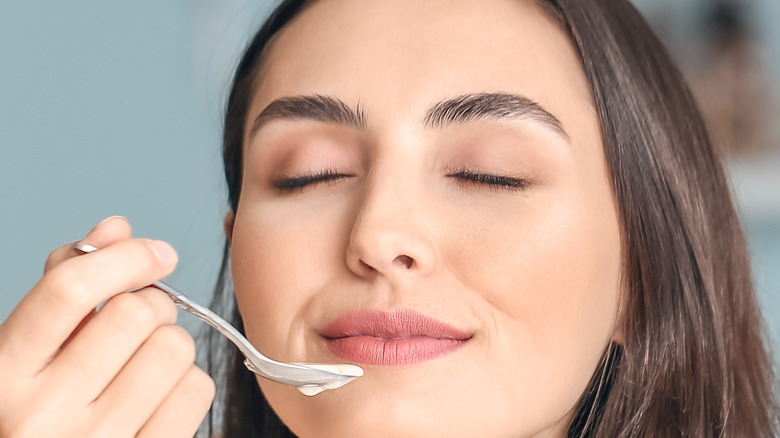What To Eat After A Tooth Extraction
It's no secret having a tooth extracted is not fun, but sometimes, the dental procedure is necessary. The foods you'll eat for several days after a tooth extraction typically look much different than your normal diet. This is because when a tooth is extracted, it leaves behind a hole or gap where the tooth used to be. According to Starry Dental, a tooth extraction is a dental procedure in which a tooth is completely removed from its socket. After the removal, either little or no bleeding will occur while a blood clot forms over the empty tooth socket to prevent infections from forming (via Starry Dental).
A tooth extraction can happen for a number of reasons, according to Simply Smiles, such as overcrowding, wisdom teeth, or disease. Many times, if a tooth is unable to be fixed, dentists will extract the tooth to avoid any further discomfort or pain. No matter the reason, tooth extraction patients must change what they eat to avoid dislodging the blood clot. Spitting, gurgling, and rinsing motions can easily dislodge the blood clot, leaving you prone to infection or dry socket.
Foods to eat after a tooth extraction
What you can eat after a tooth extraction is going to depend on how invasive your procedure is (via Starry Dental). Most tooth extraction patients are advised to eat only soft foods or liquids for several days after the procedure. According to Atlanta Dentures, it's best to stick to foods that are easy to chew and cool, such as yogurt, ice cream, or Jell-O. It's recommended to avoid ice creams containing crunchy- or chewy-like pieces. You can also try pudding if you're not a fan of Jell-O or yogurt, or opt for soup or applesauce, which will add a bit of fiber and other nutrients to your diet (via Atlanta Dentures).
By the second or third day after your tooth extraction, you can begin moving to more solid foods. You'll want to avoid hot foods, as they can lead to an infection (via Simply Smiles). Mashed potatoes, pancakes, oatmeal, and scrambled eggs are all safe foods to eat after a tooth extraction, but be sure to check with your dentist first.
To help prevent the blood clot in the socket from dislodging, you can chew on the opposite side of the extraction site. While it may be tempting, don't use a straw, as that can also dislodge the blood clot (via Atlanta Dentures). Instead, stick to the diet your dentist recommends to ensure you have a quick and easy recovery.


